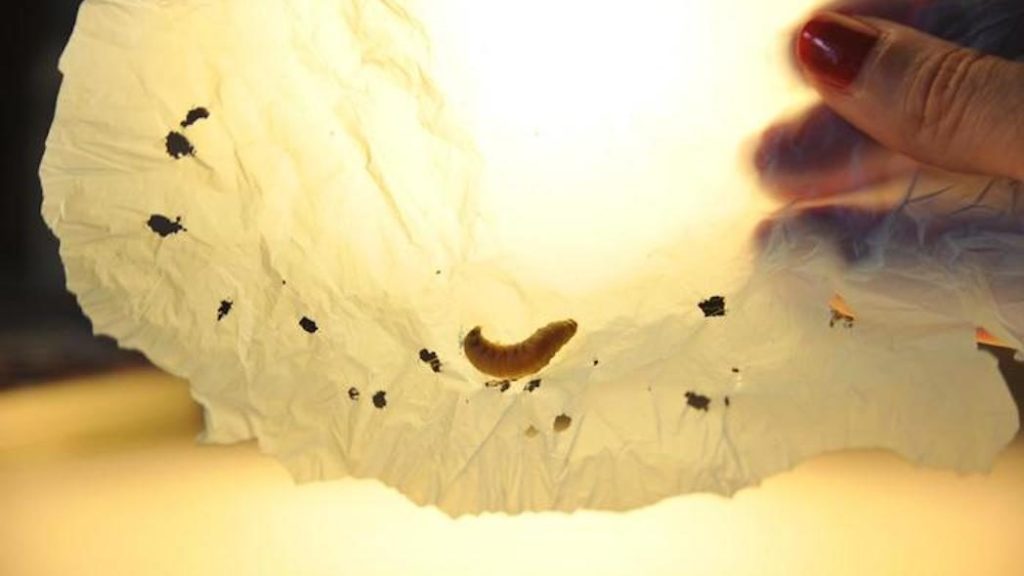The researcher Federica Bertocchini has discovered that some wax larvae are able to degrade the plastic used for packaging
A discovery “born” by chance. Federica Bertocchini, a researcher at the Institute of Biomedicine and Biotechnology of Cantabria in Spain, was cleaning the hives of her laboratory when she deposited some larvae of wax moths (Galleria Mellonella) in a plastic bag. A few hours later, the envelope was full of holes. The researcher wondered why this curious circumstance occurred and immediately contacted her colleagues Paolo Bombelli and Christopher Howe of the Department of Biochemistry of the University of Cambridge to ask for explanations. Since they weren’t able to give her an answer either, she decided to conduct an experiment in time. One hundred larvae were placed in a polyethylene bag, the plastic most used to produce supermarket shopping bags. After only 40 minutes, the first holes appeared and after 12 milligrams of polyethylene (PE) had disappeared. On the basis of these data, the Bertocchini team was able to demonstrate that the reduction in plastic was due to the process of digestion of the larvae. The larvae eat the plastic and, during digestion, break the chemical bond of the polyethylene to convert it into ethylene glycol, a compound biodegradable in a few weeks.
Wax larvae for recycling plastic
The discovery of Bertocchini could open the way to new solutions for the disposal of plastic and environmental protection. Polyethylene, in fact, is one of the most widely used materials in the packaging industry. According to a recent WWF study, every year a trillion PE bags end up in landfills all over the world. One ally against this pollutant could be the larvae: “Since polyethylene alone represents 40% of the total demand for plastic products throughout Europe – says the Italian researcher – this discovery could be fundamental, especially if we could implement all this in a feasible way, working on a solution to save our oceans and our ecosystems. To create an eco-sustainable landfill we will need the agent that degrades the plastic extracted from the larvae, and not huge amounts of live larvae: also because they are harmful to bees, already in global decline. For now we have concentrated on “disassembling” the polymer. The immediate step now will be to concentrate on “reassembling” it in something useful or in any case totally harmless”.
